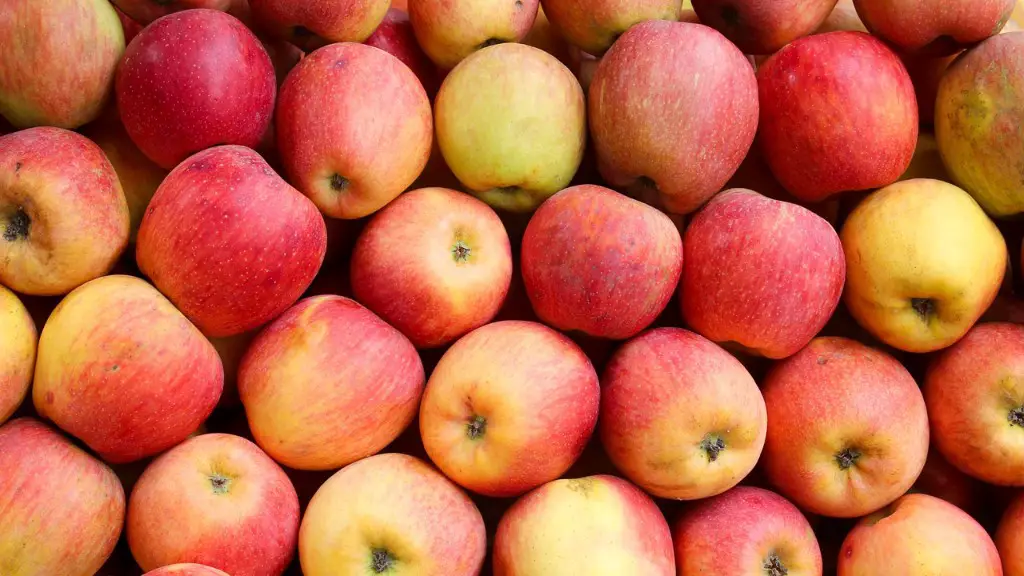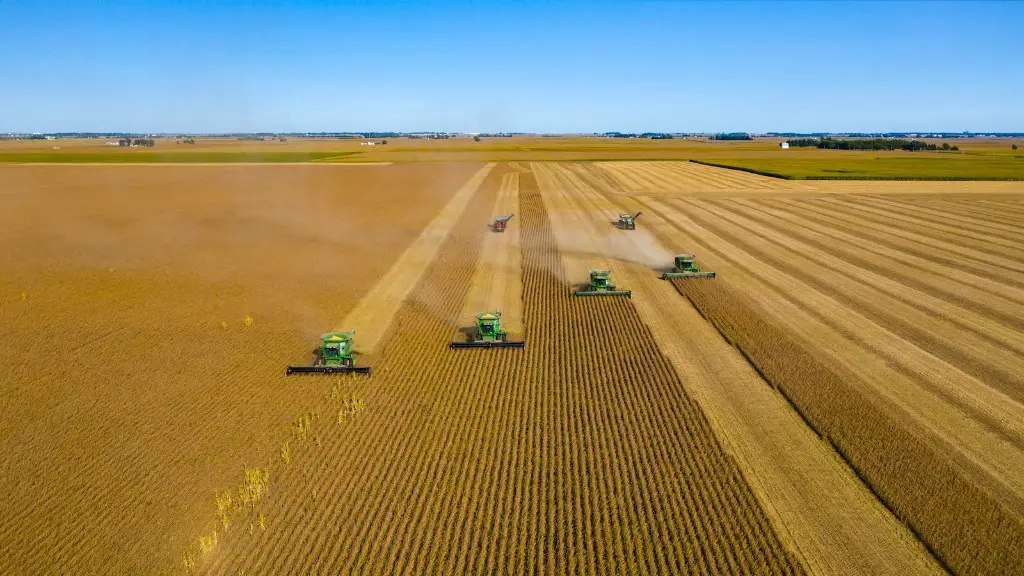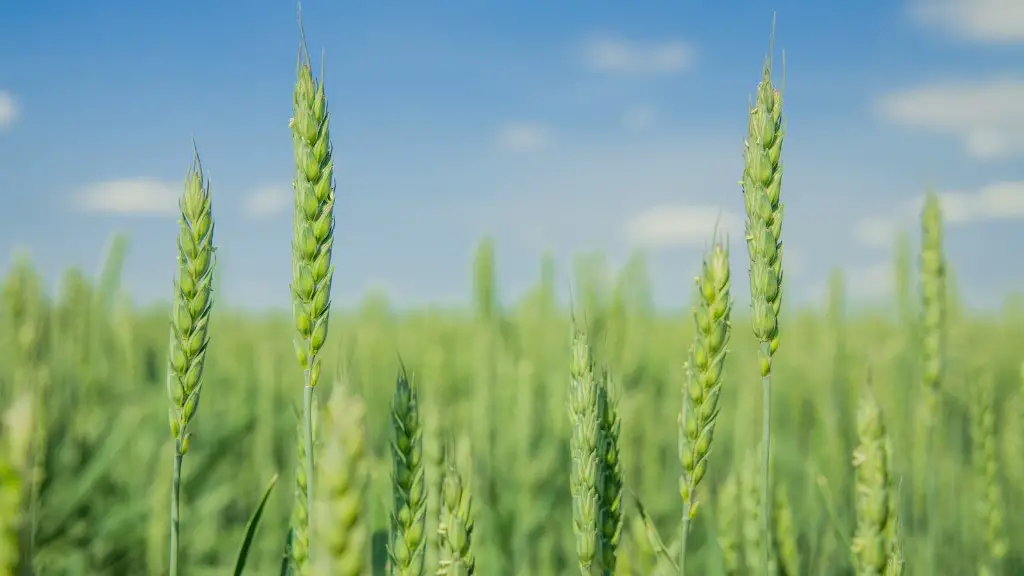The benefits of studying agriculture are vast. Agriculture is the study of how to grow crops and raise animals for food. It is a vital part of the global food supply chain, and therefore, it is essential to the survival of the human race. Agricultural science also investigates other important areas such as environmental conservation and sustainability.
There are many benefits to studying agriculture. Agriculture is the science and art of producing plants and animals for food, fiber, and other products. It includes the study of how to improve the quality and quantity of food production, how to conserve natural resources, and how to protect the environment.
Why is it important to learn about agriculture?
Agricultural education is far more important than just an elective curriculum. Our daily needs such as food, clothing, medicine, and even the paper this article was printed on require agriculture. The National FFA is one of the largest youth-led organizations in the United States. FFA members learn the importance of hard work, determination and perseverance through hands-on experience in agricultural education.
Agricultural education is important because it helps us understand where our food comes from. It also teaches us about the many career opportunities available in agriculture, which can help us build a strong agricultural workforce. Agricultural education is important because it helps us understand how to be responsible stewards of the land.
What are benefits of agriculture
Agricultural production is a major source of food, jobs, and raw materials for other industries. It is a key driver of economic growth and poverty reduction, and plays a vital role in environmental protection.
Agriculture also supports livelihoods through food, habitat, and jobs. It provides raw materials for food and other products, and builds strong economies through trade.
Agricultural production has a significant impact on the environment. It is a major source of greenhouse gases and land degradation, and is a major contributor to deforestation, water scarcity, and biodiversity loss.
1. It’s the main source of raw materials: Agriculture is the main source of raw materials for industries such as textile, pharmaceuticals, and paper.
2. It’s important to international trade: Agriculture is a key sector in international trade, with products such as coffee, cocoa, and fruits & vegetables being traded between countries.
3. It plays a big role in a nation’s revenue: Agriculture is a major contributor to a country’s GDP, with the sector accounting for a significant portion of the revenue in many developing nations.
4. It provides employment: Agriculture is a major source of employment, with over 1.3 billion people employed in the sector worldwide.
5. It’s crucial to a country’s development: Agriculture is essential for a country’s development, as it provides the food and raw materials needed for industry and infrastructure.
6. It can help heal the environment: Agriculture can play a role in environmental protection, with sustainable practices such as agroforestry helping to restore ecosystems.
7. It goes hand-in-hand with war: Agriculture has often been a key factor in wars, with countries vying for control of farmland and resources.
8. It’s a vital part of the
What are the five benefits of agriculture?
Farming is good for your health:
Farming is a great way to stay active and get fresh air. The work can be challenging and stimulating, and it provides a source of income in rural areas. Farm work also helps develop younger generations by teaching them responsibility and hard work. Plus, farming can help the environment thrive by providing healthy food and using sustainable practices.
1. Agriculture is the single largest employer in the world.
2. There are 914 million acres of farmland just in the US.
3. The average US farmer can feed 155 people.
4. Beef farming accounts for 29% of American farms.
What is the most important in agriculture?
The agriculture industry is vital to the world’s food supply. Agriculture is responsible for everything from harvesting crops to raising livestock. The agriculture industry meets the daily food needs of vegetarians and carnivores alike.
The use of modern machinery in agricultural lands has increased crop production and quality, providing more raw materials to industries. This has had a positive effect on the economy and has created more jobs in the agricultural sector.
What are 3 effects of agriculture
While the development of agriculture in a region has many positive effects on the natural life, oxygen production and climate in the region, there are also some negative effects, such as inorganic nitrate pollution, pesticide pollution and salinity problems. These problems are especially prevalent in regions where agriculture is practised intensively.
If you’re eager to work in agriculture and have the relevant engineering skills, this is a great opportunity to pursue a career in the field. You’ll be able to apply your knowledge to real-world settings, and potentially make a significant impact on the agricultural industry.
What’s interesting about agriculture?
farmers markets are a great place to get locally grown produce and support your community. food hubs are similar to farmers markets, but they offer a wider variety of local foods. dairy cows produce a lot of milk, which is used to make cheese, butter, and other dairy products. women make up a significant portion of the farming population and are essential to the industry.
Agriculture is the backbone of the Indian economy and it plays a vital role in the country’s economic development. The sector contributes around 15 percent to the Indian GDP and employs more than 60 percent of the country’s workforce. In the last few years, the agricultural sector has been under stress due to various factors such as declining productivity, climate change, and water scarcity. These factors have severely impacted the incomes of farmers and the overall growth of the sector.
The government has taken various initiatives to boost the agricultural sector and promote growth. One of the most important initiatives is to promote capital formation in agriculture. Capital formation is the process of investing money in assets that generate economic returns. It is an important source of funding for any economy and it plays a crucial role in the growth and development of a country.
There are various ways in which capital formation can be promoted in the agricultural sector. One of the most important ways is to encourage farmers to invest in productive assets such as irrigation equipment, farm machinery, and storage facilities. The government can provide financial assistance to farmers to help them invest in these assets. Another way to promote capital formation in agriculture is to encourage private investment in the sector. This can be done by providing tax incentives and creating
Why did you choose agriculture as your course
I actually live in an area where agriculture is the main source of living. I wanted to learn more about it and I really love plant life. My cousin recommended this course to me and I’m really enjoying it. I’m currently an Officer in Chief Security Guard.
Agriculture, food, and related industries are a vital part of the US economy, contributingroughly $1264 trillion to US gross domestic product (GDP) in 2021. This sector represents a 54-percent share of the overall US economy. Agriculture alone contributes $1647 billion to US GDP, which is approximately 07 percent. The agriculture industry is vital to the American way of life and provides essential products and services that we all rely on.
What is the importance of agriculture to the community?
The importance of agriculture to the community cannot be overstated. Agriculture creates jobs for members of the community, boosts the community’s economic growth, and sustains the community by providing food and other raw materials.
Growth in agriculture results in an almost immediate impact in terms of increased employment of rural labour in a host of non-tradable activities. The studies report that most farm households supplement their income from non-farm earnings thus having an immediate impact on poverty reduction and food security.
Is it worth it to study agriculture
Overall, pursuing a degree in agriculture can be beneficial in many ways. It can help you better understand the industry and give you the skills and knowledge needed to be successful. It can also open up other job opportunities and help you advance in your career. So if you’re considering pursuing a degree in agriculture, go for it!
The environment and agriculture sector offers a wide variety of interesting and rewarding careers. Agricultural consultants help farmers to improve their operations and increase their yields. Animal nutritionists work with farmers and veterinarians to develop nutritious diets for livestock. Ecologists study the interaction of plants and animals with their ecosystems. Environmental engineers develop technologies to protect the environment and improve agricultural productivity. Farm managers oversee the operations of farms and agricultural businesses. Fisheries officers manage the sustainable use of fisheries resources. Hydrogeologists study the movement of water through the Earth’s crust.
Conclusion
The benefits of studying agriculture are many and varied. Agriculture is a vital sector of the economy, and those who study it can go on to have successful careers in a variety of fields. Agriculture also provides an opportunity to learn about and connect with the natural world. Those who study agriculture can learn about crop production, animal husbandry, and soil science, among other topics. Additionally, those who study agriculture can gain important skills in leadership, management, and communication.
The benefits of studying agriculture are many and varied. Those who choose to study this vital field can look forward to a bright future in terms of both personal satisfaction and job security. Agricultural studies provide students with a detailed knowledge of how to grow and nurture crops, how to care for livestock, and how to manage land for sustainable use. With the world’s population continuing to grow, there is an ever-increasing demand for food and other agricultural products. Those who have a passion for working with their hands and the land can find great fulfillment in a career in agriculture.





